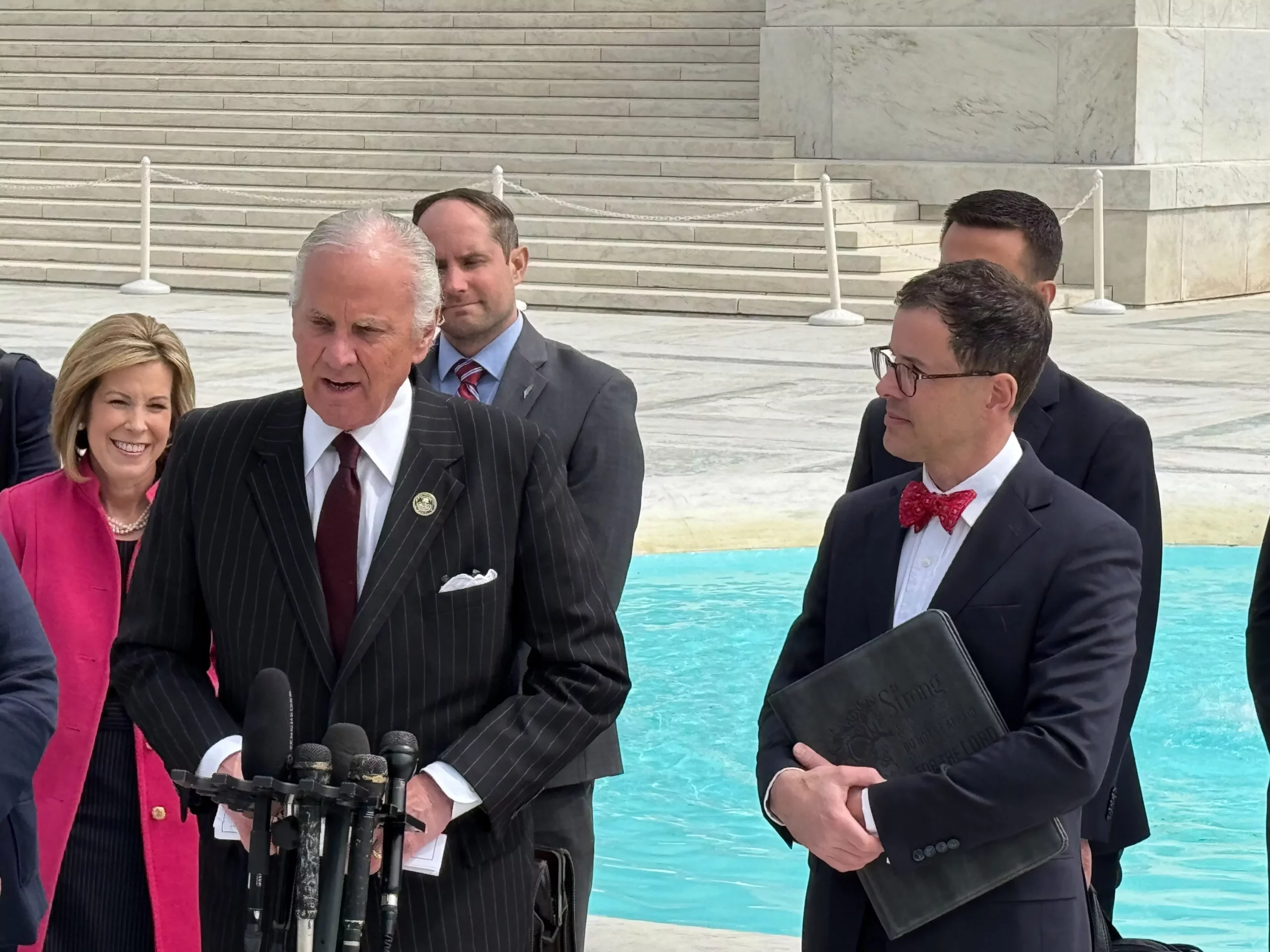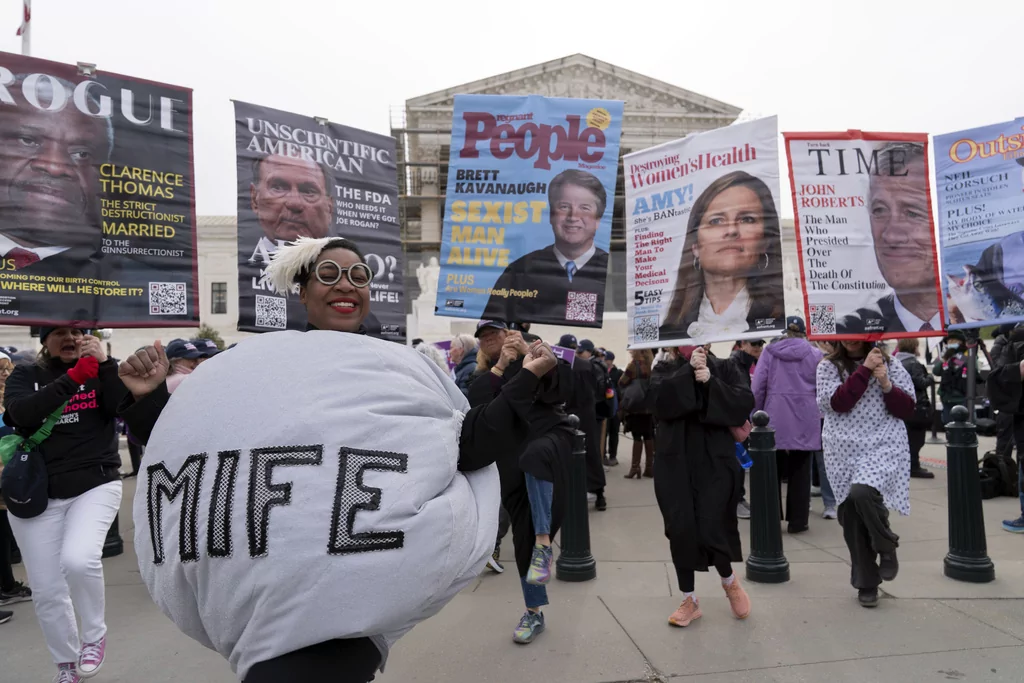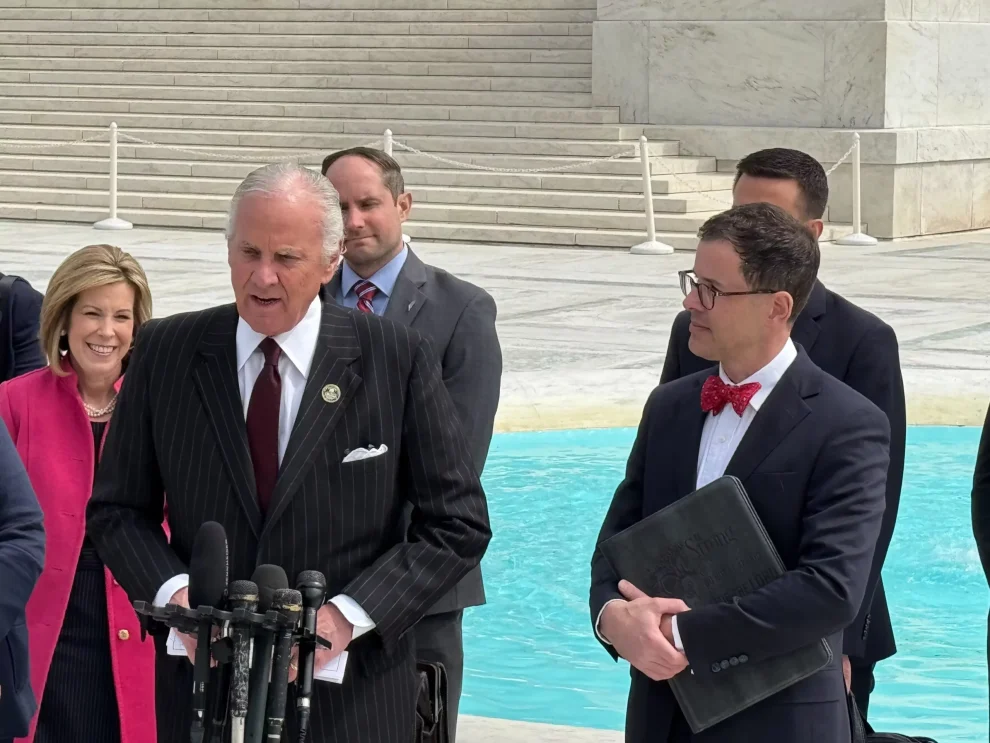The future of state Medicaid funding for Planned Parenthood remains uncertain following an intense oral argument session before the Supreme Court on Wednesday.
Justices heard Medina v. Planned Parenthood South Atlantic, a closely watched case that could determine whether Medicaid patients have a right to sue when states block access to certain healthcare providers.
The challenge stems from a 2018 executive order by Gov. Henry McMaster (R-SC) that directed the state health department to disqualify abortion providers like Planned Parenthood from Medicaid reimbursement — even for non-abortion services such as contraception, cancer screenings, and sexually transmitted infection testing. Planned Parenthood South Atlantic and one of its patients, Julie Edwards, sued, arguing that the federal Medicaid statute guarantees access to “any qualified and willing provider.”
South Carolina argues that it retains the power to determine what counts as “qualified” and that patients can still access other state-approved providers.
Although abortion was only briefly mentioned during oral arguments, the case has significant implications for the financial future of the largest abortion provider in the nation, as other states could eye revoking Medicaid funding should South Carolina’s challenge be successful.
Is there a right to sue under Medicaid?
Much of the courtroom debate centered not on abortion but on whether patients have any legal standing to challenge the state’s decision.
In arguing for South Carolina, John Bursch insisted the Medicaid Act does not create a private right of action. Instead, he said enforcement lies with the federal government through the Department of Health and Human Services. “It’s like Blue Cross Blue Shield,” Bursch said. “Patients can only go to in-network doctors — those deemed qualified by the plan.”
Planned Parenthood attorney Nicole Saharsky pushed back, arguing that Medicaid was specifically designed to empower patients. “This is a very individual choice that Congress was trying to protect. It’s individuals who are hurt,” she said.
After arguments, Bursch told reporters outside the court that his team felt confident about its case.
“The Justices seemed to get the point that we were making, which is that Congress creates rights enforceable in federal court only when it uses clear, explicit language in the statute, and that provision that we’re talking about today simply doesn’t have that,” said Bursch.
Bursch told the Washington Examiner that Justices Brett Kavanaugh, Neil Gorsuch, John Roberts, and Amy Coney Barrett seemed open to South Carolina’s position.
The “magic words” test and Talevski precedent
A key legal sticking point is whether the Medicaid statute contains the “magic words” that signal a congressional intent to create a private right to sue. The debate follows the court’s 2023 ruling in Health and Hospital Corporation of Marion County v. Talevski, in which justices set a high bar for lawsuits under federal spending laws.
“This Court made clear in Talevski that this is a high bar. It’s atypical,” Bursch said. He noted that, unlike the nursing home statute in Talevski, Medicaid does not include a patient’s bill of rights or similarly explicit language.
Saharsky conceded that the bar is high but argued that the Medicaid provision meets it. “This language here — ‘may obtain from any qualified and willing provider’ — does,” she said. “It’s about personal access to care.”

Justices spar over the meaning of ‘rights’
Justice Elena Kagan voiced skepticism about South Carolina’s position, saying the statute plainly implies a right to choose providers. “I don’t even know how to say this without using the word ‘right,’” she said. “The state has to ensure that individuals have a right to choose their doctor. That’s what the provision is,” she said.
Chief Justice John Roberts considered a hypothetical in which Congress intended patients to receive services but did not enforce that right themselves. “That’s imaginable,” he said, questioning whether enforcement was solely up to HHS.
Justice Ketanji Brown Jackson, who wrote the majority opinion for Talevski, argued that the 2023 precedent already clarified this issue and questioned the narrative of confusion. “Certainly, we’re only two years out from Talevski,” she said. “There is no confirmation that lower courts are still confused about what they’re supposed to be doing.”
Kavanaugh calls for clarity after ‘45-year odyssey’
Justice Brett Kavanaugh appeared sympathetic to both sides but underscored the broader implications. “This court has failed to give guidance,” he said, referencing decades of inconsistent rulings from lower courts. “One of my goals coming out of this will be to provide that clarity.”
However, even Kavanaugh acknowledged the challenge of “line-drawing” if the court opens the door to private lawsuits without a firm standard — a problem that has divided federal courts for decades.

Defunding Planned Parenthood: The broader backdrop
A ruling in Medina v. Planned Parenthood South Atlantic is expected by the end of June. In the meantime, the case has sparked a renewed political effort to defund Planned Parenthood, an agenda item that has rallied anti-abortion advocates for decades.
Just days before oral arguments, anti-abortion activists flooded Capitol Hill to demand Congress cut off all federal funding to the organization.
While the Hyde Amendment already bars direct federal funding of abortions, critics argue that any government support for abortion providers frees up other resources for abortion services.
ALABAMA CAN’T PROSECUTE ABORTION TRAVEL FUNDERS, FEDERAL JUDGE RULES
According to its most recent financial disclosures, Planned Parenthood received nearly $700 million in government reimbursements and grants in the fiscal 2022 and 2023 —roughly 34% of its revenue.
The Trump administration has also begun withholding tens of millions of dollars in Title X family planning funds from affiliates, citing its ban on federal funding for diversity, equity, and inclusion initiatives.
























